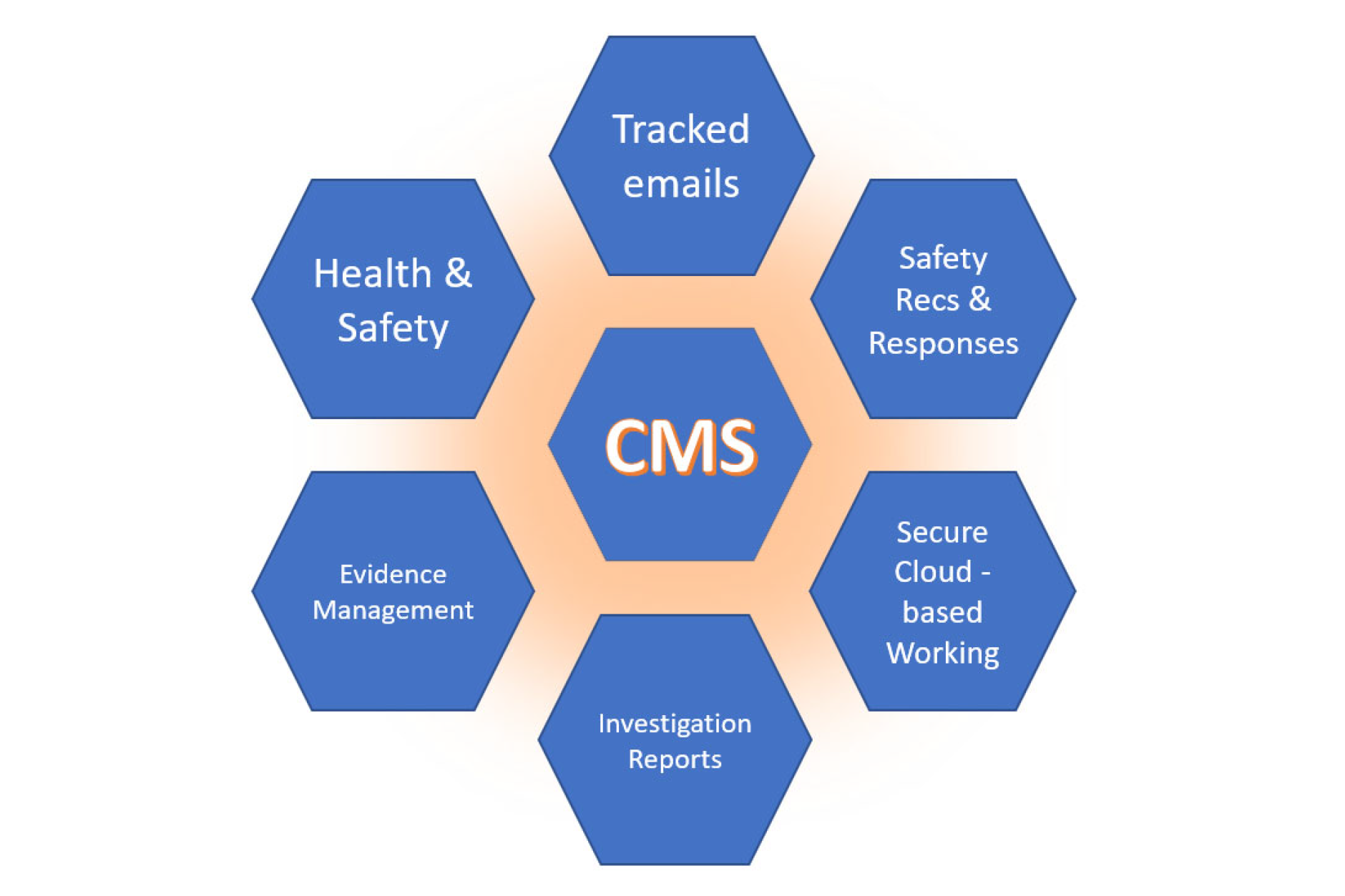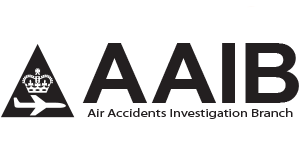AAIB’s Case Management System
Published 24 June 2021
As an investigative body there is a need to store appropriate records securely and to manage the investigation process from event notification to assessment of responses to recommendations. The legacy system was proving to be outdated and was not flexible enough to keep pace with changes in accident investigation regulations.
In March 2020 AAIB went live with a new cloud-based Case Management System (CMS). This was fortuitous timing as it was the week before the UK went into lockdown due to Covid-19 and our legacy database system did not provide good remote access.
The CMS programme was the result of two years of development and testing. It replaced the previous bespoke database, and importantly brought tracked emails and investigation evidence, such as images, into one cloud-based system. The system can be accessed from most mobile devices giving significant improvements for staff working remotely, which is routinely encountered during deployments, as well as during enforced home working during the Covid-19 pandemic.
Agile project techniques were used to develop the system, and much of the core functionality was developed in conjunction with the UK Rail and Marine Accident Investigation Branches to reduce costs. Importantly AAIB case records from legacy systems have been migrated into CMS to provide a database of events spanning several decades.

Managing the Investigation
The case management process starts with a notification to the AAIB. This might be from a pilot, an airport, an operator, the police or from a member of the public. The AAIB accident line is active at all times. During UK office hours the accident line is staffed by the AAIB’s Operations Centre, whilst out of hours the accident line is transferred to the DfT’s Duty Office who then contacts the AAIB’s Duty Coordinator.
Information, gathered from the notification, such as contacts, event description, damage to the aircraft, is entered into CMS. Previously this info would have been recorded on an electronic form, however it is now input directly into CMS by whoever takes the call and is immediately available for the AAIB’s Duty Coordinator to make their assessment as to the AAIB’s response.
Event notifications are triaged by the AAIB Duty Coordinator, who is an experienced investigator. This includes an assessment of the severity of the event according to international standards set out in Annex 13 to the Convention on International Civil Aviation and regulations, as well as an assessment of the appropriate response from AAIB. In a typical year AAIB receives just under 1,000 notifications and AAIB are very keen that they achieve an element on over-reporting so that all events from which safety lessons can be learned are captured. AAIB responses include:
- Deploying a team for a Field investigation
- Assigning an inspector for a correspondence investigation
- Conducting a wide-ranging Safety Study
- Completing a short (few lines of text) Record Only investigation
- Assisting a foreign state by appointing an Accredited Representative or “Expert”
- Referring the investigation to a UK sport aviation body
- No Further AAIB Action.
Having captured the assessment in CMS the AAIB Operations Centre Team then support the investigation process with various activities such as sending formal notification emails to organisations such as State Investigation Authorities. The team assigned to the investigation are entered in CMS and thereafter automated alerts notify the case team of key milestones in the investigation process.
Managing the Investigation
A dedicated SharePoint site has been created as part of CMS where case information, such as documents, images and email attachments, are stored. This allows the case team to share case information throughout the investigation, including during the field phase where the deployed team are often not working at the same location. There is also functionality in CMS to record notes on investigation progress to assist management oversight.
A key part of the investigation is report creation. AAIB publish several report types such Formal Reports, Field Investigation Reports, Correspondence Investigation Reports, Special Bulletins and Record Only Reports; these are all managed from CMS and the linked SharePoint site. This includes managing the email process for formally requesting comments on draft reports in accordance with the ICAO Annex 13 standards.
Managing Safety Recommendations
Making Safety Recommendations is a key part of AAIB’s activities in improving aviation safety. The formal transmittal of Safety Recommendations, and the responses from the addressees to Safety Recommendations, is managed and monitored from CMS. This includes managing both the email process with external addressees as well as managing the internal assessment of responses.
Evidence Management
The tracking of evidence has been incorporated within CMS. Evidence can be logged into CMS during a field deployment using mobile devices and can be tracked as the investigation progresses. CMS has the functionality to manage ‘child’ evidence that is generated from ‘parent’ evidence during a component teardown for example. The system has the option to use barcode readers available on mobile phones.
Management data
The system has powerful search capabilities and the ability to tailor data presentation to various user needs using bespoke views. This is particularly useful for providing automated management information for example weekly event logs, inspector workload allocation and managing responses to Safety Recommendations.
The Deputy Chief Inspector at AAIB, has been very pleased with the results, “not only has this been a real enabler to AAIB during lock down with the extended periods of home working, but it has also provided AAIB with the flexibility to evolve our business processes. The latter is particularly important for our key outputs and Safety Recommendations, as we are now required to monitor the responses and actions taken by organisations”.

